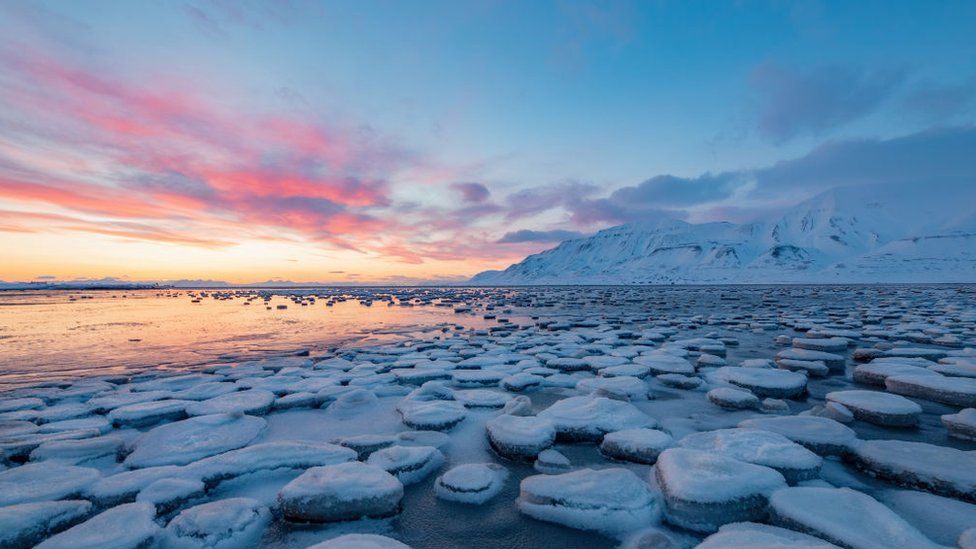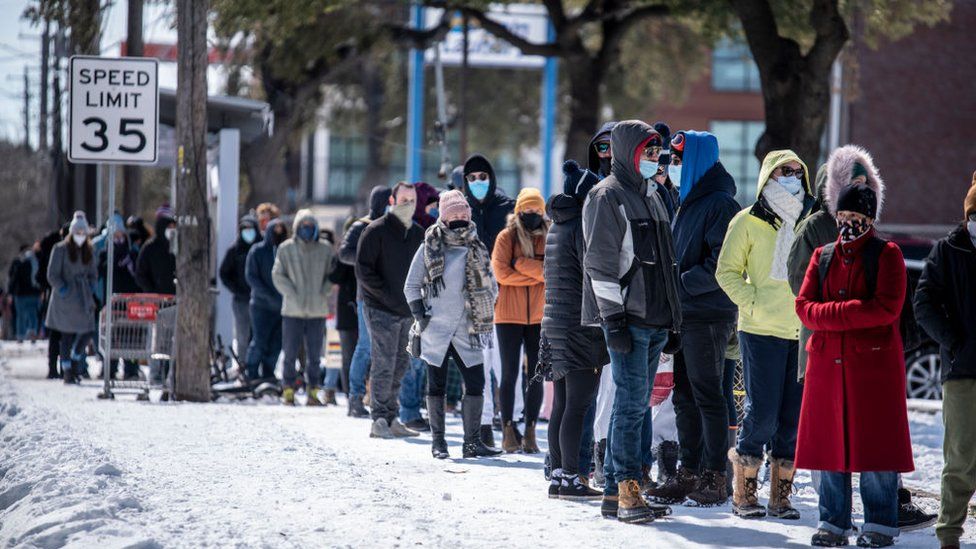Showing posts with label Artic. Show all posts
Showing posts with label Artic. Show all posts
Wednesday, December 4
Lost Military Base Under Ice
NASA has shared an image of a defunct Cold War-era military base hidden deep underneath the frigid Greenland Ice Sheet.
As NASA cryospheric scientist Chad Greene flew over the Arctic plateau in April 2024, around 150 miles east of Pituffik Space Base in northern Greenland, he snapped an image from the window of the Gulfstream III aircraft.
At the same time, the plane's radar instrument picked up a ping from deep below the ice, which turned out to be the remains of Camp Century, a Cold War base buried 100 feet below the surface of the frozen island.
"We were looking for the bed of the ice and out pops Camp Century," Alex Gardner, also a cryospheric scientist at NASA's Jet Propulsion Laboratory (JPL), said in a statement. READ MORE...
Saturday, September 11
Colder Winters

A new study shows that increases in extreme winter weather in parts of the US are linked to accelerated warming of the Arctic. The scientists found that heating in the region ultimately disturbed the circular pattern of winds known as the polar vortex.
This allowed colder winter weather to flow down to the US, notably in the Texas cold wave in February. The authors say that warming will see more cold winters in some locations. Over the past four decades, satellite records have shown how increasing global temperatures have had a profound effect on the Arctic.

Warming in the region is far more pronounced than in the rest of the world, and has caused a rapid shrinkage of summer sea ice. Scientists have long been concerned about the implications of this amplification of global change for the rest of the planet.
This new study indicates that the warming in the Arctic is having a significant impact on winter weather in both North America and East Asia. The researchers detail a complex meteorological chain that connects this warmer region to a rotating pattern of cold air known as the polar vortex.
The authors show that the melting of ice in the Barents and Kara seas leads to increased snowfall over Siberia and a transfer of excess energy that impacts the swirling winds in the stratosphere above the North Pole.
The heat ultimately causes a stretching of the vortex which then enables extremely cold weather to flow down to the US. There has been an increase in these stretching events since satellite observations began in 1979. The scientists believe this vortex stretching process led to the deadly Texas cold wave in February this year. READ MORE
Subscribe to:
Comments (Atom)
